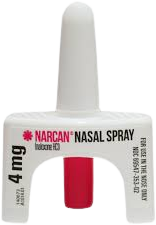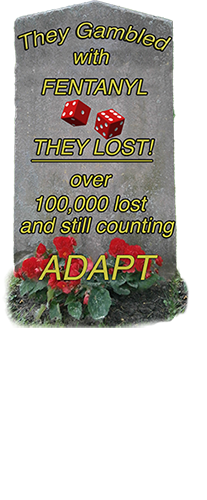


Fentanyl is a synthetic opioid that is up to 100 times more potent than morphine. While it can be effective for treating severe pain, its high potency also makes it extremely dangerous. One of the biggest dangers of fentanyl use is the risk of overdose. Even a small amount of fentanyl can cause respiratory depression, which can lead to hypoxia and even death. In fact, fentanyl has been responsible for a significant increase in overdose deaths in recent years, particularly among those who use opioids recreationally. Fentanyl is also highly addictive, and its use can lead to dependence and withdrawal symptoms, which can be difficult to manage. Furthermore, because fentanyl is often mixed with other substances, such as heroin or cocaine, it can be difficult to know exactly what you're taking and how much fentanyl is present. This can increase the risk of overdose and other dangerous side effects. In short, fentanyl is an extremely potent and dangerous drug that should only be used under close medical supervision.
 This much is
This much is 
Narcan, also known by its generic name naloxone, is a medication used to reverse the effects of an opioid overdose. Opioids are a class of drugs that include prescription painkillers like oxycodone, as well as illegal drugs like heroin.
When a person overdoses on opioids, their breathing can slow down or stop completely, leading to brain damage or death. Narcan works by blocking the opioid receptors in the brain, which reverses the depression of the central nervous system and restores normal breathing.

Before you use any drug be safe and test with a Fentanyl Test Strip. A one dollar ($1) test could save your life!

Many states provide free kits, but rules vary based on local or state law.
Locations and contacts of where you can find free or low-cost naloxone, see the National Community Based Naloxone Finder Map. Contact them for more information.
Many programs provide naloxone emergency kits free of charge to people who use drugs, their friends and family, and other people who may be able to quickly respond in the event of an overdose.

Getting help for substance abuse is an important step towards recovery and a healthier life. There are many resources available to individuals struggling with substance abuse, including detox programs, rehabilitation centers, support groups, and therapy. It is important to reach out to a trusted healthcare provider, family member, or friend for guidance and support. Seeking help can be a difficult and overwhelming decision, but it is essential for breaking the cycle of addiction and moving towards a brighter future. With the right support and resources, it is possible to overcome substance abuse and live a fulfilling life.
ADAPT was created not only to educate young people about the dangers of alcohol and drugs but also to reassure parents that there are resources available to help their children should they struggle with addiction. Parents are understandably concerned about their children's safety and well-being. It's important to be aware of the available programs if you do find yourself struggling with addiction. Remember that denial can be a dangerous thing, and addressing a problem early on can prevent it from taking over your life. By being informed and aware of the available programs will give you resources if you are concerned with addiction. Parents can help their children make responsible choices and avoid the potential heartache and pain that often come with addiction. Join us on the journey to true freedom.![]() READ MORE
READ MORE
<
Dr. Paul Janssen synthesized fentanyl in a lab in 1959 with the objective to alleviate severe pain. While mimicking opioids like morphine, he concocted a smaller molecule with less oxygen and more nitrogen. Although he didn’t know it at the time, this drug would match the receptor better than any naturally occurring opioid.
“The opioid, when you are taking it orally, is going to all parts of your body,” says Dr. Jose Moron-Concepcion, Opioid receptors function throughout the body, not just in the brain. And in addition to monitoring pain, the receptors also regulate breathing and intestine function. The release of dopamine slows down breathing. Too much, and breathing stops altogether. That’s an opioid overdose – and it’s deadly. Fentanyl is considered to be 100 times more potent than morphine and can release 120-170% more dopamine.which is one of the reasons why it has such a significant potential for abuse.


© Copyrights ADAPT. All Rights Reserved